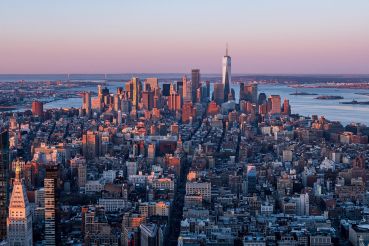No, the Office Is Not Dead
By Jessica Lappin February 15, 2021 11:06 am
reprints
There’s been a lot of ink spilled over how the coronavirus pandemic spells the end for the traditional office. With Manhattan office occupancy hovering around 11 percent, some speculate that work as we know it is gone forever. People seem to like the flexibility of working from home over a daily commute and a desk. Are they going to feel that way forever?
Working from home has plenty of benefits. Cutting out commutes opens up more time for family, sleep, or mid-morning trips to the grocery store. There is something to be said for flexibility when technology allows it. Some people are more productive outside the typical 9-to-5 work structure. Some find long, midday walks get their creative juices flowing. Others need to be home when school lets out, or on laundry day, or when the heat’s on the fritz in mid-December and, for some reason, the super can only come by at 3:07 p.m.
But flexibility cuts both ways. Studies show that office workers toiling from home during the pandemic are more likely to put in more work hours, not fewer. There is no “quitting time,” train to catch, or an emptying office to signal the end of the workday. People are more likely to send or answer emails at all hours, even on weekends.
In the long run, this is wearing. A recent Gallup survey found that fully remote workers are now experiencing more burnout than those on site, with 29 percent of employees who work fully remotely saying they felt burned out at work “very often” or “always.”
There is a benefit to separating your work life from your home life. A short commute serves as a transition from one world to the other. And even though we love our families dearly, it can be a challenge to spend all of our time together. If you are single and already frustrated with your roommate for leaving his dishes in the sink, you don’t need to add their workday pen-clicking habit into the mix.
Most importantly, humans are wired for connection. We are not built for solitude and loneliness. We are a social species and need the collaboration and companionship of an office. It’s hard to be mentored, have serendipitous conversations, or even Monday morning water cooler chats when the office is a Zoom room. It’s hard to be creative when you can’t just pop by a colleague’s desk to brainstorm. Real life camaraderie and face-to-face conversation can’t be replaced by virtual contact. In the main Downtown Alliance office, when given the option, many of our non-essential staff of 50 have chosen to come in a few days a week and reconnect. That’s been true for me, too.
COVID has forced us to be socially distant and masked for now. I don’t think we will ever return to a pre-pandemic 9 a.m. to 5 p.m. lifestyle. What’s more, the technological advances that have permitted us to work from home this past year will continue to facilitate more flexibility and freedom. But there is a real benefit to having a central workspace, a desk of your own that’s far from the kids and the roommates and the construction down the street. And our office workers are central to the vibrancy of the surrounding neighborhoods, including our local restaurants and shops.
Working from home is a benefit because it’s an option, but the office is a critical one, too. Employers and employees know this. When the vaccine is here for most, the offices will be, too.
The office isn’t dead. It’s resting.
Jessica Lappin is the president of the Alliance for Downtown New York.


